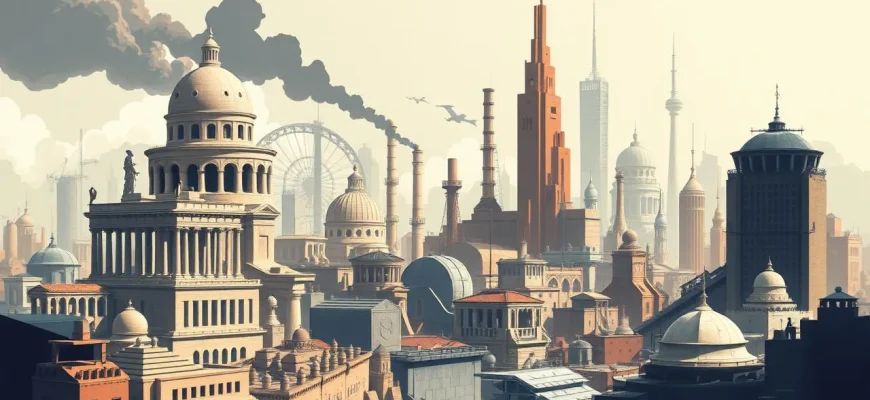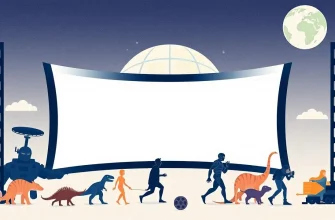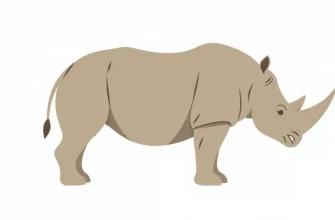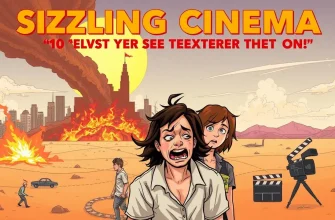Are you fascinated by the intricate tapestries of human civilizations, their rise, their fall, and everything in between? This curated list of films delves into the heart of various civilizations, offering a cinematic journey through time and culture. From the ancient empires to futuristic societies, these movies provide not just entertainment but also a window into the complexities of human society, governance, and the eternal quest for progress or survival. Whether you're a history buff, a sci-fi enthusiast, or simply love a good story, these films will captivate and educate.

The Fall of the Roman Empire (1964)
Description: A sweeping epic that chronicles the decline of Rome, focusing on the political intrigue, military might, and the personal struggles of its leaders.
Fact: The film was one of the most expensive productions of its time, with a budget of $19 million, and it features an impressive cast including Alec Guinness and Sophia Loren.
 Watch Now
Watch Now 
The Last Emperor (1987)
Description: This biographical drama follows the life of Puyi, the last Emperor of China, offering a unique perspective on the transition from imperial rule to modern civilization.
Fact: The film was the first Western production to be allowed to film in the Forbidden City in Beijing.
 Watch Now
Watch Now 
The Matrix (1999)
Description: This sci-fi classic explores a future where humanity is unknowingly trapped inside a simulated reality created by sentient machines, questioning the nature of reality and civilization itself.
Fact: The Wachowskis developed the concept for "The Matrix" after reading "Simulacra and Simulation" by Jean Baudrillard.
 Watch Now
Watch Now 
The Day After Tomorrow (2004)
Description: This disaster film imagines a sudden global climate shift that leads to the collapse of modern civilization, highlighting humanity's vulnerability to nature's whims.
Fact: The film was inspired by the book "The Coming Global Superstorm" by Art Bell and Whitley Strieber, which explores the concept of abrupt climate change.
 Watch Now
Watch Now 
The New World (2005)
Description: Terrence Malick's poetic film tells the story of the first English settlers in America, focusing on the cultural clash between the Powhatan tribe and the colonists.
Fact: The film was shot on location in Virginia, where the actual events took place, to capture the authenticity of the setting.
 Watch Now
Watch Now 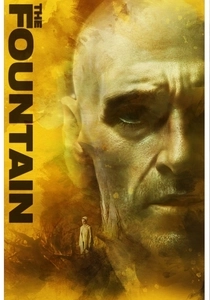
The Fountain (2006)
Description: Darren Aronofsky's film intertwines three stories across different civilizations, exploring themes of love, immortality, and the human quest for knowledge and eternal life.
Fact: The film was originally conceived as a much larger project, but budget constraints led to a more focused narrative.
 Watch Now
Watch Now 
300 (2006)
Description: Based on the graphic novel, this film dramatizes the Battle of Thermopylae where 300 Spartans held off the massive Persian army, highlighting themes of bravery, sacrifice, and the clash of civilizations.
Fact: The film was shot almost entirely on a green screen, with the iconic battle scenes created through CGI.
 Watch Now
Watch Now 
Apocalypto (2006)
Description: This visceral film by Mel Gibson plunges viewers into the heart of the Mayan civilization just before its collapse, showcasing the brutal realities of life, sacrifice, and survival.
Fact: The film was shot entirely in the Yucatec Maya language, and the actors underwent a rigorous training program to authentically portray the Mayan culture.
 Watch Now
Watch Now Avatar (2009)
Description: James Cameron's epic takes us to Pandora, where human civilization's expansion clashes with the indigenous Na'vi, exploring themes of imperialism, environmentalism, and cultural clash.
Fact: The film was the first to be released in 3D that was not animated, revolutionizing the film industry's approach to visual storytelling.
 Watch Now
Watch Now 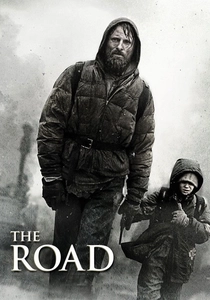
The Road (2009)
Description: While not directly about a civilization, this post-apocalyptic tale examines the remnants of society and the struggle for survival, offering a bleak yet profound look at human civilization's potential end.
Fact: The film was shot in various locations to capture the desolate, post-apocalyptic landscape, including areas in Pittsburgh and New Orleans.
 Watch Now
Watch Now 
